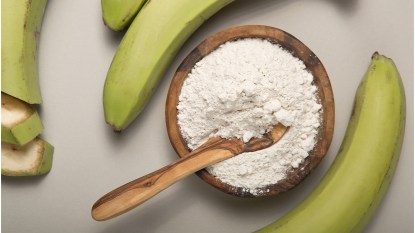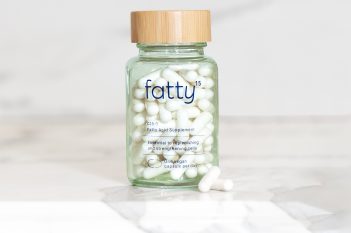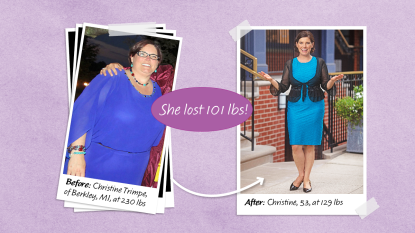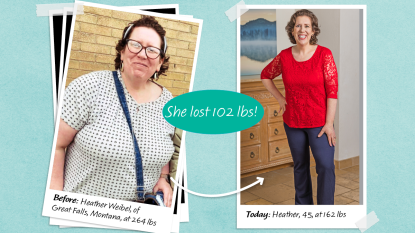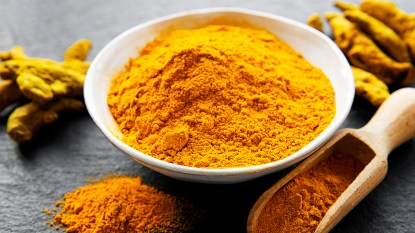Lose 3 Times More Weight With This Keto Diet That Fights Diabetes, Heart Disease, and More
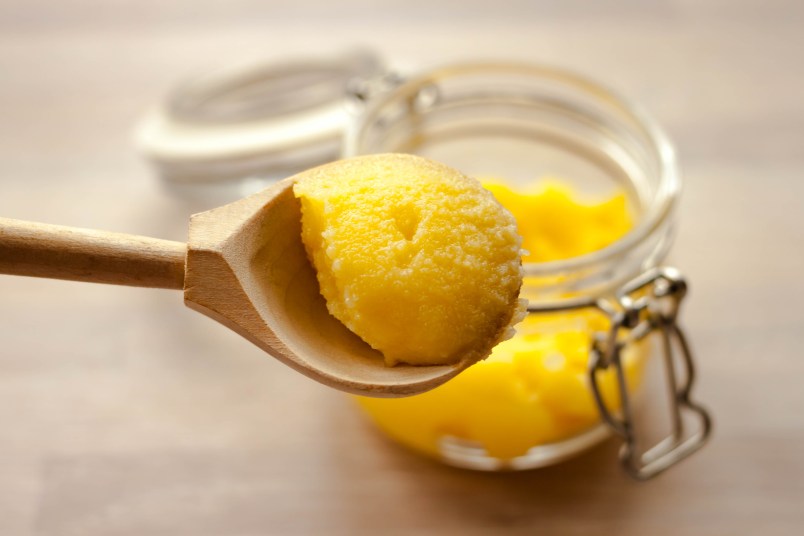
Catherine Shanahan, M.D., had just set off for a hike when her knee started aching. She figured it would pass, but the pain continued to get worse, and two years later, the board-certified
physician could barely walk. “Everything I tried seemed to make things worse,” she says. Searching for answers, she looked at her family history but found that her health problems didn’t run in her family.
“My parents and grandparents were pictures of health,” she shares. Next, she began to research nutrition. “As I read, I realized my medical education had failed to provide me with some important basics. I began to see that the root cause of my health woes — and those of my patients — is the food we’re eating.”
What’s so bad about the food we eat today? It all comes down to fat. While we still eat the same total amount of fat as 50 years ago (about 80 grams a day), 80 percent of fat calories in a traditional diet come from highly refined polyunsaturated fats, like canola and corn oils. Dr. Shanahan explains, “Our parents and grandparents, on the other hand, got most of their fat from minimally processed animal-based fats like butter.”
The problem: These highly processed oils wreak havoc on the body. “As the body tries to burn them for fuel, these oils break down into free radicals, which creates cellular smog that pollutes the body and slows fat burning,” says Dr. Shanahan.
Italian researchers found that while the fats in our grandparents’ diet prompted cells to burn fat efficiently, the highly processed polyunsaturated fats most common in our diets today slow down fat burn by roughly 50 percent.
These oils also kick off a vicious cycle that triggers sugar cravings. Because our cells need energy to function, the brain starts looking for alternative sources — and sugar is an accessible, quick-burning fuel.
“The more sugar you eat, the more reliant you become on sugar,” Dr. Shanahan asserts. “Your cells become sugar addicts.” The result: The body struggles to sustain steady blood-sugar
levels, which sets the stage for weight gain — and eventually diabetes.
Luckily, swapping out highly processed fats makes slimming a snap. “Once my patients start enjoying whole-milk dairy, nuts, butter, and animal meat, they start to feel more energized and less hungry almost immediately,” Dr. Shanahan promises.
In fact, studies show that within an hour of eating healthy fats, cells stop producing metabolism-slowing free radicals. And within as little as 24 hours, cells start to tap into body fat for fuel.
The benefits don’t end with weight loss. Nixing highly processed fats can slash migraine frequency by 80 percent and ease joint pain by 41 percent, and women say that eating more minimally processed fats helped them sleep deeper, lower cholesterol, and improve memory.
Replacing unhealthy polyunsaturated fats in your diet with saturated and animal-based fats heals the metabolism to fire up fat burn. “This simple swap will feel easy because you get to eat food that is just as delicious and more satisfying,” says Dr.
Catherine Shanahan, MD, a board-certified family physician who created the PRO Nutrition program for the Los Angeles Lakers.
“And once you start burning your body fat for energy, weight will come off effortlessly.” The first step is eliminating highly refined vegetable and seed oils. These oils are refined in high-heat, high-pressure processes, which damages the fats. The worst offenders, Dr. Shanahan says, are canola, corn, cotton seed, soy, sunflower, safflower, and vegetable oils. “You have to eliminate these like your life depends on it,” she says.
“But it isn’t always easy considering these oils compose a third of
the average person’s calorie intake.” These highly processed oils are in many packaged foods — even those labeled organic and non-GMO. What’s worse, they’re in foods that you may not think to check, like peanut butter and pasta sauce. “You need to read food labels carefully,” says Dr. Shanahan. “If it’s a vegetable oil, avoid it.”
Instead, enjoy good fats from fruit oils (coconut, avocado, and olive), some seed oils (sesame and flax), some nut butters and oils (peanut, macadamia, walnut, and almond) and animal fats
(like full-fat dairy, tallow, lard, and bacon grease). Some common brands that make products with these healthier oils include MaraNatha Organic nut butters, Smucker’s “Natural”
line of nut butters, Rao’s Homemade tomato sauces, Ragu “Simply” line of tomato sauces, Newman’s Own avocado oil dressings and Primal Kitchen condiments. (Note: Always double-check the label for harmful oils.)
This simple change will heal your metabolism at the cellular level while eliminating hunger and boosting energy — so weight loss feels effortless. And for even faster results, follow these simple guidelines:
Upgrade your carbs.
Dr. Shanahan recommends a keto-style
diet for healthy, sustainable weight loss. So, in addition to changing up your fat sources, you’ll also swap fast-burning
carbohydrates, like potatoes and white rice, for small portions (about 1 cup a day total) of slower-burning carbs, like
beans, oats and whole-grain breads. “Slower-digesting carbs enter your bloodstream gradually,” she explains. “They provide energy while the body transitions from burning sugar for fuel into burning fat.”
Rethink snack time.
“Nature designed us to be able to go between meals without energy dips,” says Dr. Shanahan. That’s why she suggests phasing out between-meal snacks.
That doesn’t mean you have to give up your favorite treats — simply enjoy them alongside or soon after meals. Supercharge with a mini fast. Once you’re able to go through a day without feeling hungry between meals, Dr. Shanahan suggests skipping breakfast twice a week. Why this works: “The longer you go between meals, the more adrenaline your body produces
and the more energized you feel,” she explains. “Adrenaline stimulates individual fat cells to release stored fat.”
Your Quick Guide to Fats and Oils
Oils to Eat
- Almond oil
- Avocado oil
- Butter
- Coconut oil
- Flax oil*
- Ghee
- Lard
- Olive oil
- Peanut oil
- Sesame oil*
- Tallow
- Walnut oil*
- Macadamia
- nut oil
Avoid These Oils
- Canola oil
- Corn oil
- Cottonseed oil
- Margarine
- Palm kernel oil
- Safflower oil
- Shortening
- Soy oil
- Sunflower oil
- Vegetable oil
This article originally appeared in our print magazine.


